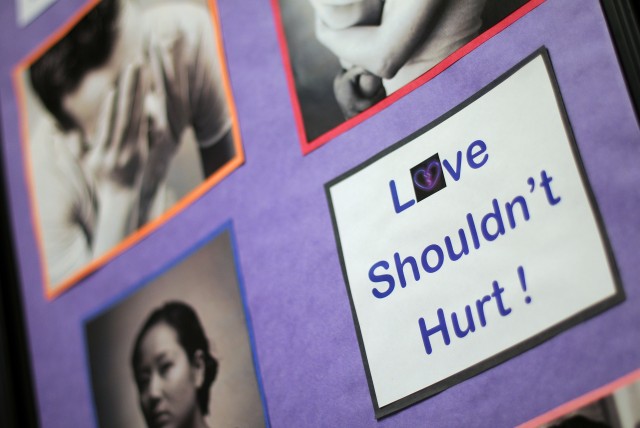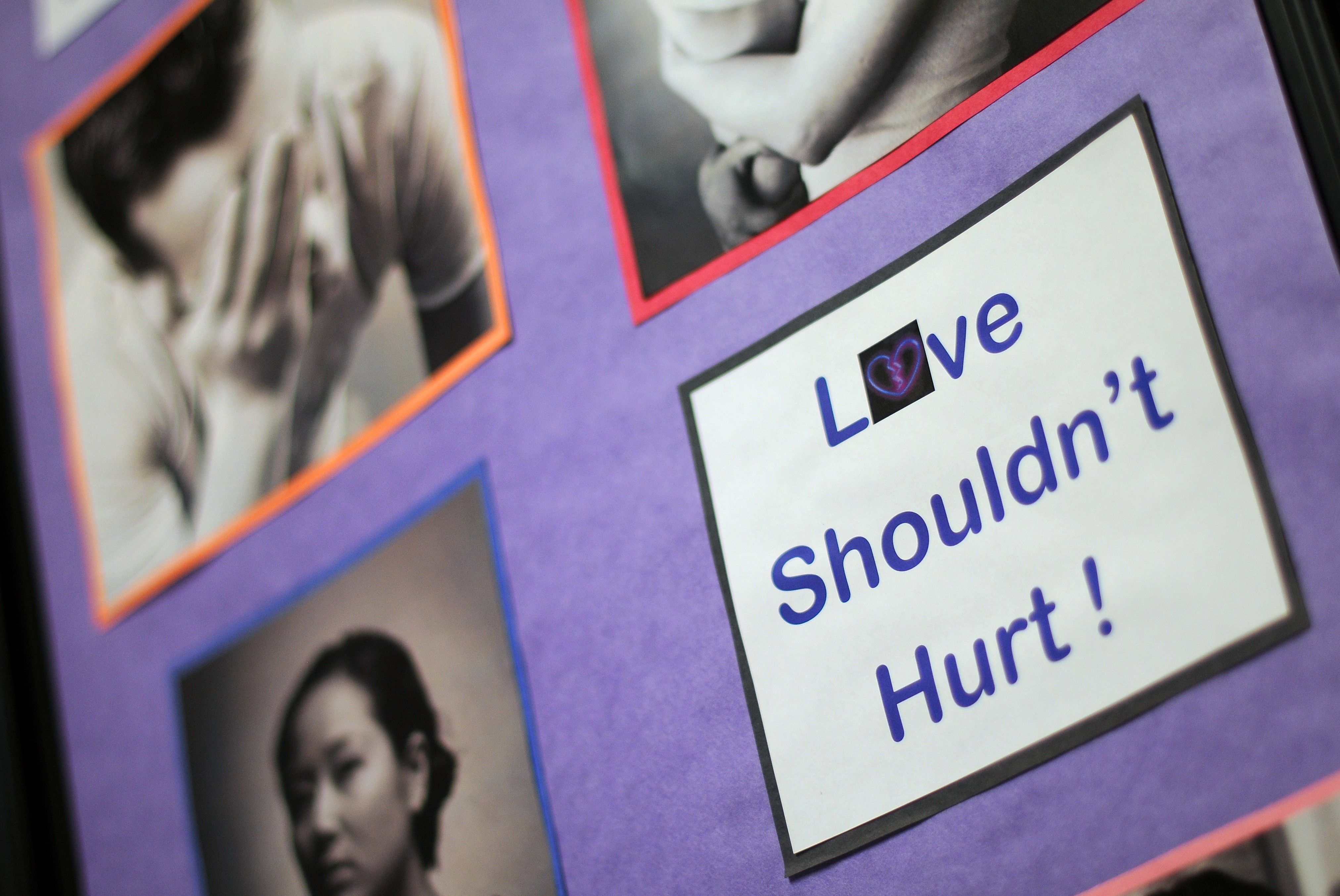JOINT BASE LEWIS-MCCHORD, Wash. - Domestic violence most often occurs behind closed doors, but its effects can extend far beyond the home.
In an effort to increase awareness, the Airmen and Family Readiness Center and Family Advocacy Program have partnered together to decrease domestic violence in the Joint Base Lewis-McChord community. Throughout the month, various events will take place and several displays with resource information will be available for viewing at prominent places throughout JBLM.
"The purpose is to educate people on what domestic violence looks like in case they are involved in it or know someone who is," said Karen Fox, FAP specialist.
Many people make the mistake of thinking domestic violence only applies to violence occuring between husband and wife, when in fact it encompasses nonmarital relationships as well. Fox defined it as "violence that occurs in a situation where there are intimate relationships," meaning it could be between people who have a child in common, have been living together, or act violently towards children in the home.
Domestic violence can be emotional, physical or a combination of both. Examples of emotional domestic violence include verbal abuse, controlling behavior, withholding finances and public humiliation. In many cases, domestic violence starts out as emotional then progresses to physical violence.
"Sometimes it will move right into physical, but what we tend to see is a progression from emotional to physical," Fox said. "We also find that early on in some relationships it happens a minimal amount of time, but as the relationship progresses, the violence occurs more frequently."
If left ignored, domestic violence can scar victims for life, and in worst case scenarios, lead to death. According to the National Coalition Against Domestic Violence, there are 16,800 homicides annually and $2.2 million medically treated injuries due to intimate partner violence.
"In 70 to 80 percent of intimate partner homicides, no matter which partner was killed, the man physically abused the woman before the murder," NCADV posted on its website.
Being part of a military community does not make one immune to such violence. Despite there being an abundance of resources available on post, many troops and their families do not take advantage of them until it is too late.
"The military population faces additional stressors like deployments, financial issues, being away from immediate family and other things specific to the (military) that can lead to domestic violence," Fox said. "A family that would otherwise never be involved in domestic violence is now more susceptible to it because of these unique stressors that the civilian sector doesn't face."
Individuals who suspect someone might be the victim of domestic violence are encouraged to report their suspicions to the Victim Advocacy Program, located on the third floor of Building 2013B on JBLM Lewis-Main. They can also call 966-SAFE (7233). The hotline is available 24-hours, 7 days a week, and is completely confidential.
"A lot of people have a misconception that it's none of their business," Fox said, "when it's really a community issue. It has a far reaching effect and it does affect us in one way or the other."
Victims and perpetrators are especially encouraged to call if they need help. If left undealt with, the consequences could far outweigh the consequences of getting help. Depending on the individual's situation, perpetrators could lose their jobs, possibly be incarcerated or have dependents involuntarily removed from their homes. The key is to reach out for help before such an incident occurs.
"They can just call and say what situation they are in and what their concerns are, and the advocate will help them," Fox said. "We have the ability to help individuals before it escalates."
Laura M. Levering is a reporter with Joint Base Lewis-McChord's weekly newspaper, the Northwest Guardian.


Social Sharing